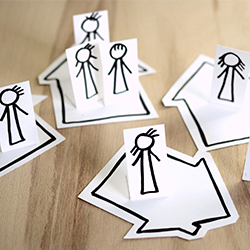Menu
Close

Caring for children in the COVID-19 crisis
Apr 1, 2020
This is a time of uncertainty, and may provoke anxiety, not only in adults, but also in our children. If you are a parent, you may be looking for ways to help your child(ren) cope in this public health crisis. Here are some guidelines.
Be calm and reassuring.
- Now is the time to love big. Be sure to show and tell your children that you love them. That you are there for them. And be sure to be there for them.
- Be present and give them extra attention. The tendency might be to stay over-connected to your news sources. But limit the time you spend on your own devices. The best time to check in on the news may be after bedtime.
Take care of yourself.
- Children take their emotional cues from the important adults in their lives. Your child will feel your calm, and but they will also pick up on your anxiety.
- Expect questions and be extra patient in answering.
- Make sure they understand that adults all around the world are taking care of people, All the precautions being taken like closing schools are there to protect them from the illness. It is definitely not the child’s job to worry.
- Give clear, child-friendly information about how to stay safe. This will give them a greater sense of control and will reduce their anxiety. Make hand-washing fun.
Be honest and accurate.
- Make sure you know the facts and that you’re relying only on credible sources.
- Monitor what your children are reading or watching. There is a lot of misinformation out there.
- Be reassuring: Children often imagine situations far worse than reality. Explain that, for now, very few people in this country are sick with COVID-19 and that most people get better.
Keep to routines but don’t forget to play!
- In the absence of usual routines, try to create new ones. Keep to usual bedtimes, meal times and exercise.
- Make opportunities for children to play and relax. Do creative things with them. Work together on a creative project.
Notice excessive worry and seek mental health supports.
- If your child already has an anxiety disorder, they may be feeling more anxious that usual.
- Listen attentively to your child’s words, and also to their actions. For instance, notice if they are having trouble sleeping or need excessive reassurance.
- If your child needs additional help with their worry, don’t hesitate to reach out for mental health supports through your physician.
